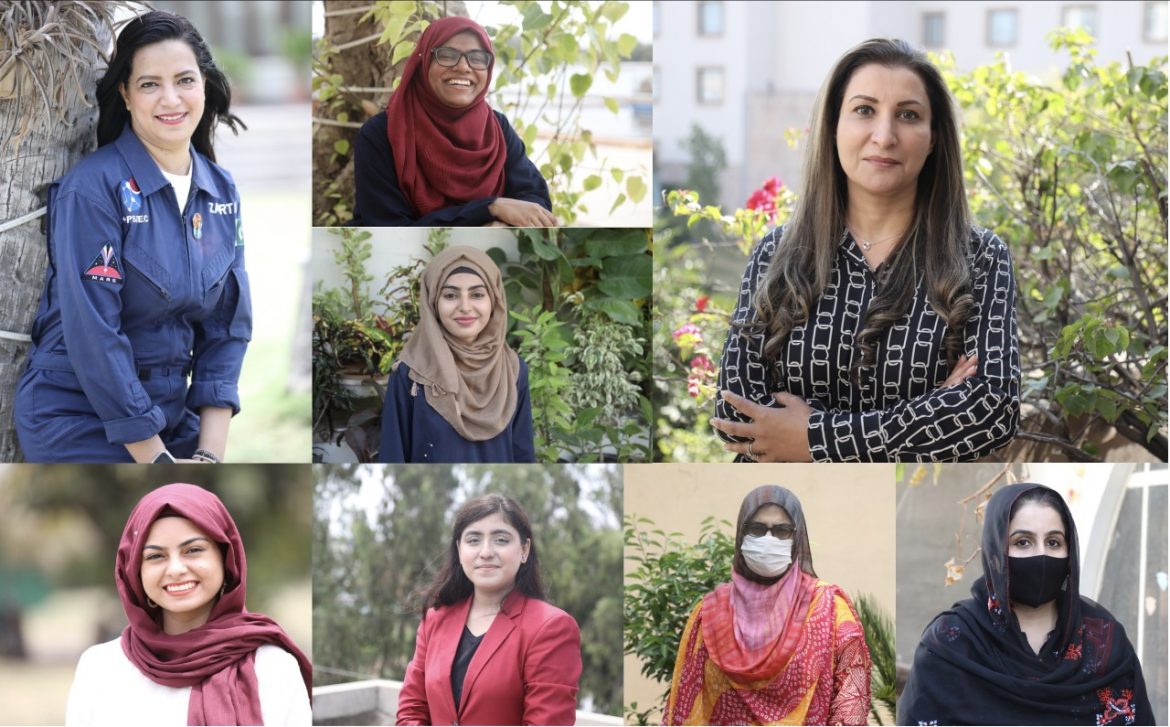Pakistani women have made significant progress in recent years and continue to work towards gender equality.
There are many organizations and individuals in Pakistan who are dedicated to promoting the rights and well-being of women, and the hard work has started to bear fruit, as we saw a lot of changes in 2022.
Moving on in 2023, we ask ourselves, are Pakistani women also going to dominate the new year?
Gender Gap Dilemma
We think so. Be it jobs, or otherwise, women in Pakistan have risen up to the challenge and have swept the competition off their feet. Whether we talk about the ladies in uniform (civil servants), activists, actors, or in any field, our women have proved time and time again that they are made of steel.
There is a significant gender gap in Pakistan, with women facing discrimination and inequalities in many areas of life. The World Economic Forum’s Global Gender Gap Report 2022 ranked Pakistan at 145 out of the 146 countries ranked on the index.
Women in Pakistan are often disadvantaged when it comes to education, employment, and political representation. They also face challenges related to gender-based violence, including domestic abuse and harassment.
Several factors contribute to the gender gap in Pakistan, including social norms, cultural practices, and inadequate laws and policies. In order to address these issues and reduce the gender gap, it is important to work towards gender equality and empower women in all areas of society.
It Always Starts with ‘Light’ Abuse: Police Surgeon Opens About Domestic Violence
This can involve efforts to promote education and employment opportunities for women, as well as efforts to address violence against women and ensure that women have access to justice.
While Pakistan’s second-last position came as no surprise for the women within the country, this makes us want to question what does the future hold for us?
In recent days, we have come so far, further than any of our ancestors or maybe even our parents have. We are more robust, united, and rebellious, we want what is ours, and we are willing to fight for it, and this spirit of raising our voices will take us far and motivate the upcoming generation.
Rights of a Pakistani Woman
In Pakistan, women have the same legal rights as men under the constitution, including the right to vote, the right to own property, and the right to equal protection under the law. However, in practice, women in Pakistan often face discrimination and inequalities, particularly in areas such as education, employment, and political representation.
There are also specific laws in place in Pakistan to protect the rights of women, including laws against domestic violence and sexual harassment. However, these laws are not always effectively enforced, and women may face barriers to seeking justice when their rights are violated.
There are many women in Pakistan who are working towards gender equality and advocating for their rights. There are also a number of organizations in Pakistan that are dedicated to promoting the rights and well-being of women.
These organizations often work to raise awareness about the issues facing women in Pakistan, as well as to advocate for policy changes and other measures that can help to reduce discrimination and inequality.
In recent years, there have been a number of high-profile campaigns and movements in Pakistan that have sought to address issues such as domestic violence, sexual harassment, and the lack of women’s representation in politics.
These efforts have helped to bring attention to the challenges facing women in Pakistan and to inspire change at the national and local levels.
In addition to the rights guaranteed under the constitution and national laws, women in Pakistan are also entitled to certain international human rights protections, including those set forth in the Convention on the Elimination of All Forms of Discrimination Against Women (CEDAW), to which Pakistan is a party.
Opinion: Straight or Sideways, Does Her Sitting Position on Bikes Really Matter?
Women in Law, Order & Politics
There has been a trend towards increased participation of women in law and politics in Pakistan in recent years. However, women’s representation in these fields is still relatively low compared to men.
According to the Inter-Parliamentary Union, women made up just 21.8% of the National Assembly of Pakistan in 2020. This is an increase from previous years but still falls short of the goal of gender equality in political representation. There are also relatively few women in leadership positions in the legal profession in Pakistan.
Despite these challenges, there are many women in Pakistan who are working to increase their participation in law and politics. There are also a number of organizations and initiatives that are dedicated to supporting and promoting the participation of women in these fields.
Learning From Mistakes
Empowering women and promoting gender equality can have a positive impact on a country’s economy. When women are able to fully participate in the workforce and contribute their skills and talents, it can lead to increased productivity and economic growth. Women’s participation in the labour force has been shown to have a positive effect on GDP in a number of countries.
Empowering women can also have a number of other economic benefits. For example, when women are able to earn their own income, they may be able to save and invest more, which can lead to increased economic stability and prosperity. In addition, women’s empowerment can lead to a more equitable distribution of income and resources, which can help to reduce poverty and improve overall economic well-being.
Overall, promoting gender equality and empowering women is important not only for ethical and social reasons but also for economic reasons. It can help to create a more vibrant and prosperous society for everyone.
Share your two cents with us in the comments below.
Stay tuned to WOW360.
